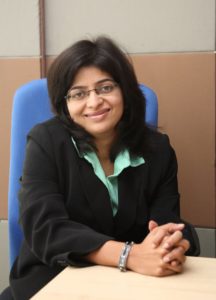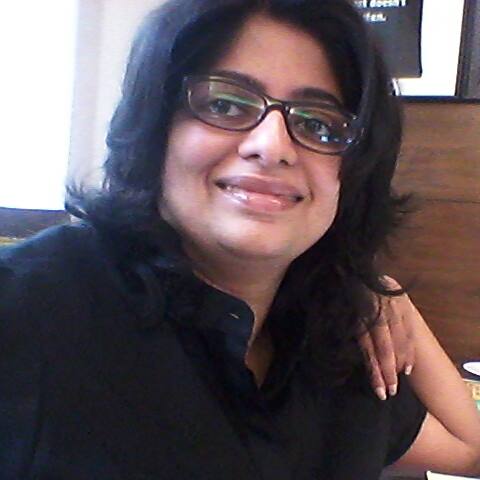Our first conversation on ‘One Cubicle at a Time’ is with Madhumitha Venkataraman. Madhu is an HR professional with around nine years of experience and has worked across multiple organizations like Snapdeal, GE Healthcare, Mercer and Edelweiss. She has worked in multiple areas of Human Resources including business partnering, leadership development, talent management, employee engagement and diversity and inclusion. She played a pivotal role in building focus on disability as a part of the GE Healthcare India diversity and inclusion charter, and was instrumental in conceptualising and leading the diversity and inclusion charter at Snapdeal.
Madhumitha is also a woman with disability (orthopaedic disability by birth) and is passionate about diversity and inclusion. She works with multiple organizations who are focused on building an inclusive world and work with different minority groups. She blogs on diversity and inclusion across varied spectrums of diversity in her blog – Different hues and views to inclusion. She has recently worked and developed a basic guide to building LGBTIQA inclusive workplaces which has got published. Off late, she is doing a course on disability, sexuality and gender from CREA and is also learning American Sign Language.
Madhu was awarded with ‘Woman of Wonder’ award in 2015 and has been featured in several media such as The Hindu, Times of India, Your Story and Eenadu for her personal journey and work on diversity and inclusion. Her dream is to see an open and inclusive world for everyone.
How did your journey start to bring awareness about inclusivity at workplace?
I am a woman with a disability by birth so that kind of makes this journey a lived reality and very personal. At work, being an HR professional, you do encounter a lot of cases where lack of inclusion at work could be the reason for feeling ‘left out’ and eventually ‘non-performance’, so dealing with inclusion and the lack of it is a part of your job.
In specific, I got an opportunity to first work in this space at GE Healthcare. We participated in a hiring drive which was organized specifically for persons with disability in partnership with Enable India and that was a great learning experience – I could see the kind of challenges in hiring the right talent both as an HR professional and as an individual with a disability. During this time, I also started reading and educating myself in this space and that’s how the journey began.
I have always been an ally of LGBTIQ community – I have had a few colleagues of mine who have come out to me through my professional career and now are close friends. It’s not very easy to hide a part of yourself at work. I could feel their pain and in the past year, given my experience in the diversity and inclusion space has expanded, my acquaintances and closeness to this affinity group has only strengthened. It is something I am very happy about.
What is inclusivity to you?
To accept, respect and let people be themselves completely. To appreciate that each of us is different and even if you are not able to understand the difference, to respect it nevertheless. That’s what inclusivity is to me.
In your career so far as an HR professional, what are the unique challenges that you have faced/face when you talk about inclusivity?
As an HR professional, what I have observed is the need for a greater understanding of the fact 
The other understanding which needs to be built is that when you are building a solution for a particular group, in most probability it is beneficial to all – for example, having a gender neutral washroom is not only beneficial to a transgender person, it is equally useful for a person with disability, equally useful when you have a ‘bring your child to work’ day and you have a father who needs to help his baby girl use the washroom.
Do you see difference in people’s attitude when you talk about different marginalised groups at work?
The corporate workplace in my mind is a mirror of the society – as in the society, you have some people who are strong allies, some who are detractors and some who are unsure, the same holds true at the workplace. In case of certain minority groups, I see limited awareness and education as the gap – for example, in case of certain disabilities, especially psychosocial or the overall understanding of gender identity and sexual orientation in the context of LGBTQIA. There is need to increase education in these spaces. In my experience, no one really wants to be ‘insensitive’ – it is lack of awareness and fear which stops one.
- Dravidar Kazhagam Calls to Extend Civil Rights to Queer Individuals in its Dravidian Manifesto - March 10, 2019
- India’s First Queer LitFest in Chennai Provided a Platform to Queer Writers and Artists in the Margins - November 12, 2018
- Movie Review : Loev is a Refreshing and Complete Indian Gay Film - May 15, 2017


